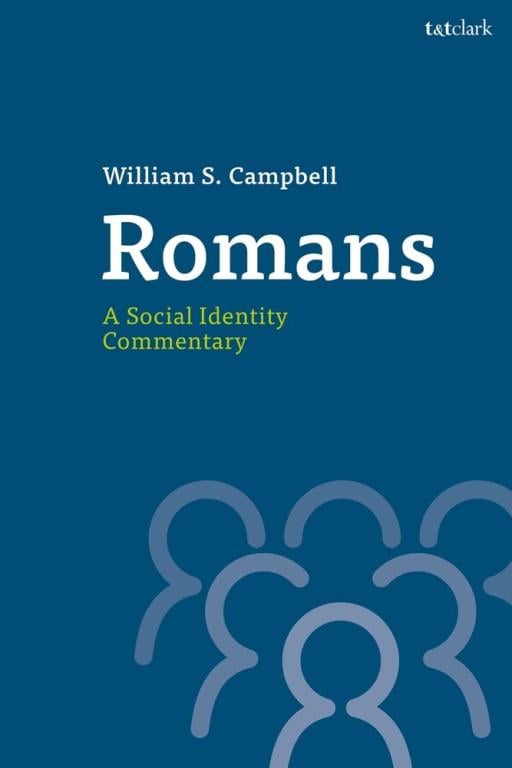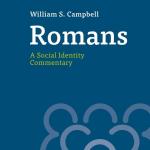Q. I was a bit surprised by your take on Rom. 7.7-25. Speech in character, from a rhetorical point of view or prosopoeia requires that one be speaking as a well-known historical person recently mentioned, as Quintilian stresses. In this case the person in question is Adam, mentioned less than 5 minutes before Rom. 7 in the continuous reading of the text of Romans likely by Phoebe. Notice the change in verb tenses from 7.7-13 to 7.14-25. Also, only Adam was given a single commandment which is all that is mentioned in 7.7-13, and interestingly in early Jews interpretation of the Genesis story, the rabbis speculated that the single commandment given to Adam was a form of the commandment about covetousness. The personification of Sin as a creature fits the talking serpent as well. So, this would mean that the ongoing issue in 7.14-25 is with those who are in Adam, but outside of Christ. For sure you are right that Paul is not describing his own autobiography, or for that matter devout Jews. I did wonder about why one has to take the word ‘nomos’ to always be a reference to the Mosaic Law, when it fact it seems to be used otherwise— there is a ruling principle of the mind and there is another and different ruling principle, namely the bondage to sin, described in Rom. 7.14-25. In neither case do we need to identify these with the Mosaic Law. And when we turn the page to Rom. 9— the ruling principle of the Spirit which sets a person free from the bondage to sin, is again surely not the Mosaic Law. The problem with the Law was that it could tell a person what they ought to do, but could not enable them to do it. That required the Spirit, which is not the Law. I do agree with you that Paul is no antinomian, as Rom. 12-14 makes clear. But I don’t think he views the new covenant is simply a renewal of the Mosaic one. Why not? Because in the first place there is his references to the Law of Christ, for instance in Gal. 6 where he is alluding to a couple of teachings of Jesus, not the Mosaic Law. The new covenant seems to involve taking over some of Mosaic commandments, some of the teachings of Jesus (for instance his teaching that declares that nothing that enters one’s mouth defiles a person, but rather what comes out of the mouth), and perhaps some apostolic teachings of Paul and others. I am unconvinced by your suggestion that in 2 Cor. 3 is not a comparison between the glory of Christ and the new covenant, as opposed to the fading glory on the face of Moses and of the old covenant. This all the more the case because of what Paul says in Gal. 4— namely that the Mosaic covenant was pro tempore, until the coming of Christ. Explain why you think this is all wrong.
A. I think speech in character in Paul does not necessarily follow the pattern of schoolbook rhetoric. Paul’s habit is to be flexible with well-known Hellenistic rhetorical patterns. He is well enough educated to be able to show his competence in that milieu, having most likely picked it up as general knowledge rather from any formal rhetorical education. Thus, his selective use of rhetorical patterns renders it difficult to draw precise conclusions from Quintilian as this would be far too static for a creative writer and thinker like Paul. This why I think Adam is not in view here. My take on Rom. 7.7-25 is that what follows in chapter 8.1 ff is the answer to the problems Paul seeks to address in the previous chapter. But Paul in Romans has not yet properly introduced the Spirit, note the unusually few references up to this point in a letter which tends to deal with topics in layers or in sequence. The last reference to spirit in 7.6 reveals chapter 7 as practically devoid of references to the Spirit which is completely reversed from the beginning of chapter 8. This indicates that in Rom 7.7-25 Paul is only dealing with life with the Law and without the Spirit whereas this is rectified in chapter 8. This suggests that Rom 7.7-25 is an artificial scenario depicting a persona with the Law and without the Spirit which has its main purpose to demonstrate that only by the Spirit of God can the Law be properly observed and its function realized. Theoretically one could argue that this also applies to the Jews, but Paul in 7.9 clearly states the this persona ‘once lived outside the sphere of the Law’ which could not apply to Jews, but only to former pagans. This coheres with Paul’s clear indications that this letter is addressed to gentiles. The reasons why it must be the Torah that Paul here refers to with nomos is because he affirms that “the nomos is holy and just and good” (7.12), that the nomos is spiritual” (7.14)and that the persona delights in the nomos of God (7.22). Although he might use nomos in a more general sense elsewhere, here he clearly refers to the Torah in my view.
You raise further questions here, that are not focusing on Rom 7.7-25 but which in my mind are not contradicted by my approach to this chapter since I am not here dealing with anything related to covenant renewal or even with the Law of Christ drawn from the arguments of other letters. I am simply trying to keep focused on the questions I have to answer.












